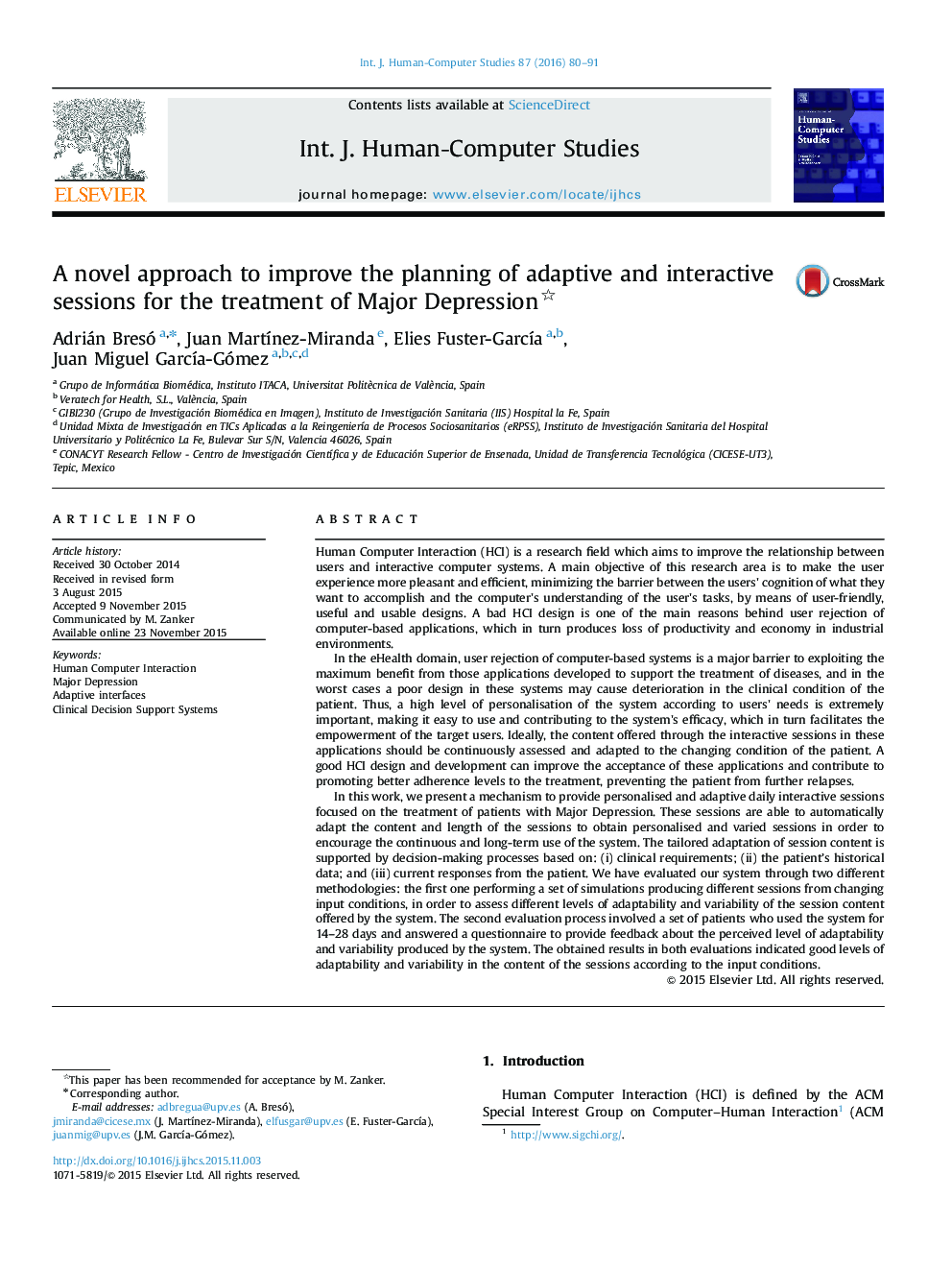| کد مقاله | کد نشریه | سال انتشار | مقاله انگلیسی | نسخه تمام متن |
|---|---|---|---|---|
| 401114 | 1438966 | 2016 | 12 صفحه PDF | دانلود رایگان |
• We present an HCI-based framework for the treatment of patients with Major Depression.
• The framework provides adaptive and personalised plans of therapeutic-based sessions.
• The Intelligent framework reacts according to the individual condition of the patient.
• Its functionality was evaluated using a relevant set of simulations and real patients.
• The developed framework can be adapted as a CDSS addressing mental health disorders.
Human Computer Interaction (HCI) is a research field which aims to improve the relationship between users and interactive computer systems. A main objective of this research area is to make the user experience more pleasant and efficient, minimizing the barrier between the users׳ cognition of what they want to accomplish and the computer׳s understanding of the user׳s tasks, by means of user-friendly, useful and usable designs. A bad HCI design is one of the main reasons behind user rejection of computer-based applications, which in turn produces loss of productivity and economy in industrial environments.In the eHealth domain, user rejection of computer-based systems is a major barrier to exploiting the maximum benefit from those applications developed to support the treatment of diseases, and in the worst cases a poor design in these systems may cause deterioration in the clinical condition of the patient. Thus, a high level of personalisation of the system according to users׳ needs is extremely important, making it easy to use and contributing to the system׳s efficacy, which in turn facilitates the empowerment of the target users. Ideally, the content offered through the interactive sessions in these applications should be continuously assessed and adapted to the changing condition of the patient. A good HCI design and development can improve the acceptance of these applications and contribute to promoting better adherence levels to the treatment, preventing the patient from further relapses.In this work, we present a mechanism to provide personalised and adaptive daily interactive sessions focused on the treatment of patients with Major Depression. These sessions are able to automatically adapt the content and length of the sessions to obtain personalised and varied sessions in order to encourage the continuous and long-term use of the system. The tailored adaptation of session content is supported by decision-making processes based on: (i) clinical requirements; (ii) the patient’s historical data; and (iii) current responses from the patient. We have evaluated our system through two different methodologies: the first one performing a set of simulations producing different sessions from changing input conditions, in order to assess different levels of adaptability and variability of the session content offered by the system. The second evaluation process involved a set of patients who used the system for 14–28 days and answered a questionnaire to provide feedback about the perceived level of adaptability and variability produced by the system. The obtained results in both evaluations indicated good levels of adaptability and variability in the content of the sessions according to the input conditions.
Journal: International Journal of Human-Computer Studies - Volume 87, March 2016, Pages 80–91
